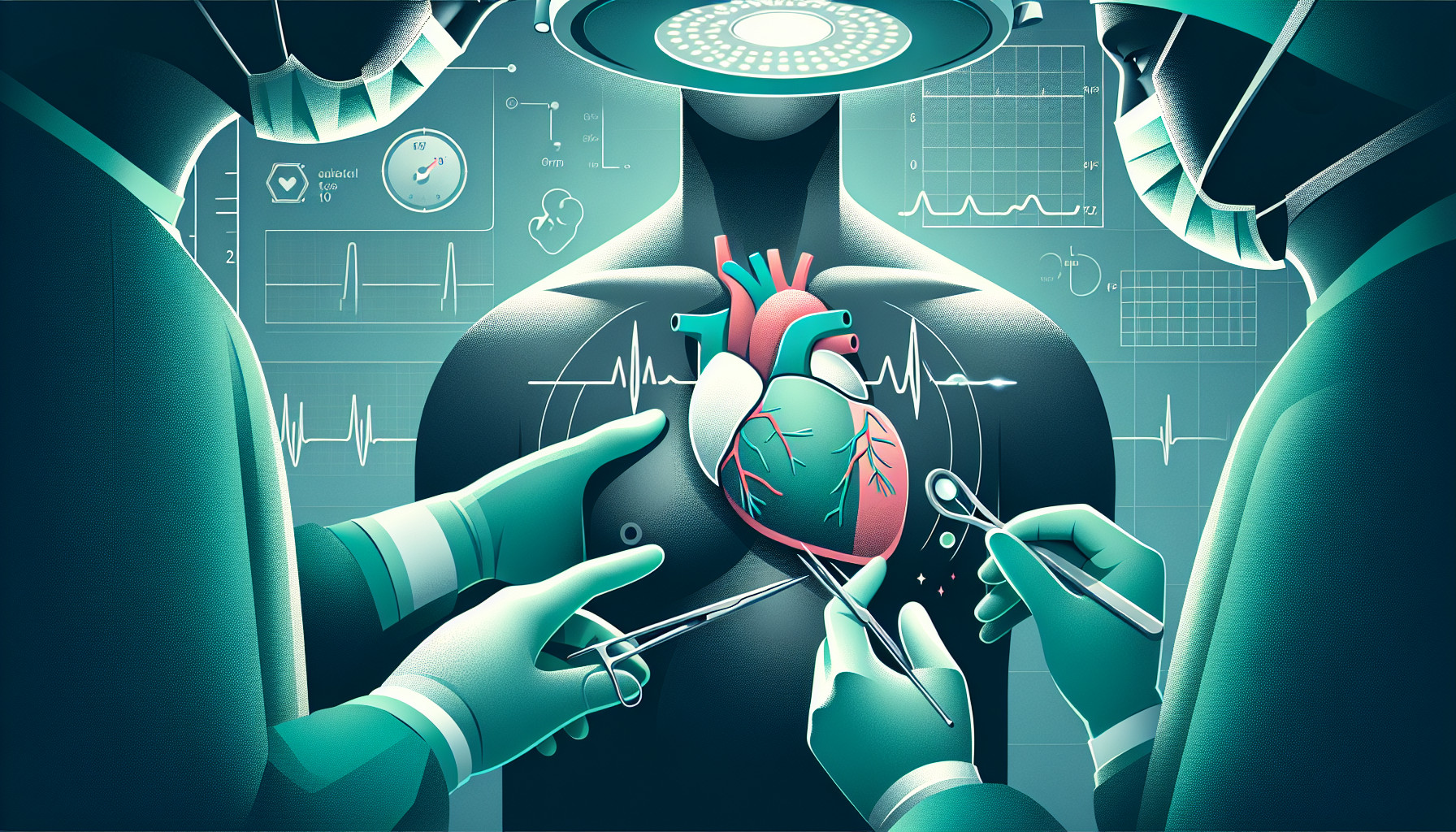Our Summary
As the full text of this research paper is not available, we can only make general assumptions based on the provided keywords.
The paper likely discusses heart failure, mitral regurgitation, and transcatheter valve replacement. In simpler terms, it’s about a specific heart condition and a treatment method.
Heart failure is a condition where the heart can’t pump enough blood to meet the body’s needs. Mitral regurgitation is a specific type of heart failure where the mitral valve (one of the heart’s four valves) doesn’t close properly, allowing blood to flow backward into the heart.
The paper also mentions transcatheter valve replacement. This is a less invasive procedure than open-heart surgery used to replace a damaged heart valve. It involves threading a narrow tube through a blood vessel in the leg up to the heart.
So, in layman’s terms, this research paper is likely discussing a problem with the heart not functioning as it should and a modern method to treat it.
FAQs
- What is mitral valve replacement?
- How does mitral valve replacement relate to heart failure and mitral regurgitation?
- What is transcatheter valve replacement?
Doctor’s Tip
One helpful tip a doctor might tell a patient about mitral valve replacement is to follow a healthy lifestyle including regular exercise, a balanced diet, and avoiding smoking to improve overall heart health and reduce the risk of complications after the procedure. Additionally, it is important to attend all follow-up appointments and adhere to any prescribed medications to ensure optimal recovery and long-term success of the valve replacement.
Suitable For
Patients who are typically recommended for mitral valve replacement are those with severe mitral valve regurgitation or stenosis that is causing significant symptoms such as shortness of breath, fatigue, chest pain, and palpitations. These patients may also have other complications such as heart failure, atrial fibrillation, or pulmonary hypertension. The decision to recommend mitral valve replacement is usually made by a multidisciplinary team of cardiologists, cardiac surgeons, and other healthcare providers based on the individual patient’s specific condition and overall health status.
Timeline
Before mitral valve replacement:
- Patient may experience symptoms such as fatigue, shortness of breath, and chest pain due to mitral valve regurgitation.
- Patient undergoes diagnostic tests such as echocardiogram and cardiac catheterization to assess the severity of the condition.
- Cardiologist recommends mitral valve replacement surgery as the best treatment option.
- Patient undergoes pre-operative testing and preparation for surgery.
After mitral valve replacement:
- Patient undergoes mitral valve replacement surgery, either through open-heart surgery or minimally invasive techniques.
- Patient is closely monitored in the intensive care unit post-surgery for any complications.
- Patient is gradually weaned off of ventilator support and pain medications.
- Patient begins physical therapy and rehabilitation to regain strength and mobility.
- Patient is discharged from the hospital and continues to follow up with cardiologist for regular check-ups and monitoring of the new valve.
- Patient may need to take blood thinners or other medications to prevent blood clots and maintain heart health.
What to Ask Your Doctor
- What is the reason for needing a mitral valve replacement?
- What are the risks and benefits of the procedure?
- What type of mitral valve replacement will be used (mechanical or biological)?
- How long is the recovery time after the surgery?
- What lifestyle changes will be necessary after the procedure?
- What are the potential complications of the surgery?
- Will I need to take medication after the surgery? If so, what are the potential side effects?
- How often will I need follow-up appointments after the surgery?
- Are there any restrictions on physical activity or diet after the procedure?
- What is the long-term prognosis for someone who has undergone a mitral valve replacement?
Reference
Authors: Muller DWM. Journal: JACC Cardiovasc Interv. 2019 Jan 28;12(2):205-207. doi: 10.1016/j.jcin.2018.11.025. PMID: 30678800
